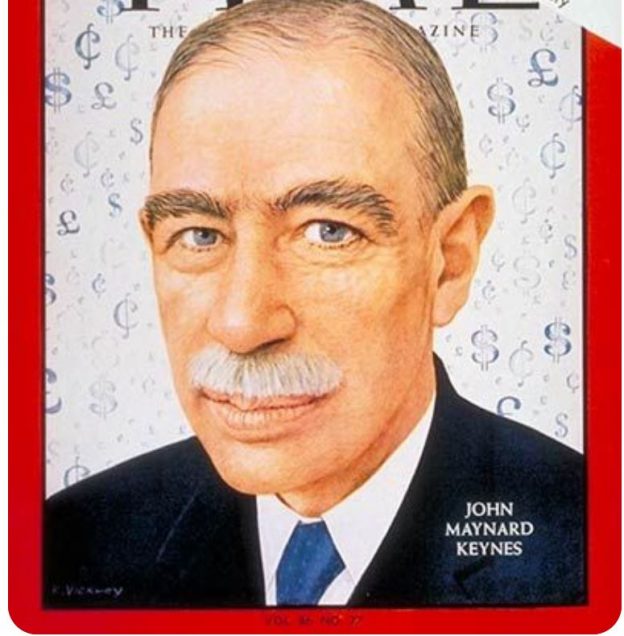“Why do people still fail to get Keynes, after all these years?” carped an impatient and uppity Paul Krugman, columnist for the New York Times.
Krugman, an avowed Keynesian—and the recipient of the 2008 Nobel Prize in Economics—replied robotically: “For—though no one will believe it—economics is a technical and difficult subject.” In other words, leave it to the experts.
Diminishing ordinary people, like demonizing private enterprise, is essential Keynesianism. Ditto “semantic obscurity.” Keynes “clothed the simplest proposition in the most complicated phraseology,” writes the author of Keynes At Harvard: Economic Deception as a Political Credo.
Written in impeccable prose, and sponsored (decades ago) by an organization of disaffected conservative Harvard alumni, Keynes At Harvard rightly points out that Keynes’s theory is not economics, but a left-wing political theory. Duly, Keynes’s political creed guaranteed a hand-in-glove relationship between the state and its stooge economists. Most of what Keynes advocated entails giving the state enormous confiscatory powers.
The classical economists—Adam Smith, David Ricardo—articulated timeless truths in clear prose. Keynes wrote impenetrable prose. Keynes’s “semantic obscurity” has been mistaken for profundity. He and his followers wanted to give the impression, as Krugman does, that Keynesians alone “have exclusive knowledge of some magic formulas incapable of being grasped by the average man.”
The Washington Post’s David Ignatius calls this “revolutionary”: “Keynes’s revolutionary idea was that … investment cannot safely be left in private hands. So it fell to the government to take actions that would restore confidence and stimulate investment.”
Clintonite Robert Reich couches Keynesian overreach as “optimism,” crediting The Optimist Keynes for “saving capitalism from itself.” Reich religiously believes, following Keynes, that “public investing on a grand scale” could accomplish almost anything—”from building the middle class to buying trading partners.”
Republicans are as devout about Keynes as are Reich and Krugman. Nixon famously declared, “We are all Keynesians now.” But my comment is redundant; Bush has bested the most committed Keynesian. “Nixon’s Keynesian conversion … looks positively quaint compared with the fiscal and monetary stimulus” Bush has initiated, quipped Steven Pearlstein of the Washington Post.
How much to hand out; who to hand it to; which handout makes the best use of taxpayer money; do the Big Three submit a business plan with their bailout requisitions, or not—that’s the depth of the “philosophical” to-be-or-not-to-be among Republikeynesians.
So who was this man who controls the economy from the grave?
Keynes At Harvard provides commendably detailed and scrupulously documented answers: John Maynard Keynes was a Fabian socialist strongly opposed to private enterprise. The Fabian society was formed in England in the late 1880s and spread throughout the British Empire. The Fabians aimed to replace the market with “an efficient administrative bureaucracy,” as F. A. Hayek put it. Its emissaries also came to infect almost every nook and cranny of the American state and civil society.
Fabians departed from communists on the use of force. Whereas the communists believed in “attaining power by violence,” Fabians perfected a form of Islamic takiya—lying to spread the faith, in their case, state-socialism. “Easing into absolute power by deceit” was to be achieved by infiltrating every societal institute under the guise of moderation (and by deploying impeccable manners, once terribly important among the British elites).
Among Keynes’s closest friends were notorious Fabian radicals such as Bertrand Russell, George Bernard Shaw, and the Webbs—Sidney and Beatrice (née Potter). Sidney Webb and Keynes assumed control of the prestigious Royal Economic Society, using its good name to spread state-socialism. Similarly, Fabian Keynesians conquered the Liberal Party by peaceful coup—it was once the party of classical liberalism and laissez-faire capitalism.
“Socialism by stealth” has been spectacularly successful. The communists are politically extinct; the Fabians are everywhere apparent, palming off socialism on the world, while enjoying esteem and respect, and marginalizing those who call their bluff as right-wing extremists.
The Royal “We” used by Keynes’s buddy Beatrice when she mulishly exclaimed, “We have fallen in love with Soviet Communism,” was warranted. Soviet Communism, her best-selling ode to communism, was praised by comrade Keynes. Keynes, like the Webbs, was an icon in the Soviet Union. When he was offered a “Russian decoration” for one of his epistolary mazes, the campy Keynes crowed: “Being a Bolshevik, I thought it more proper to refuse.”
I’m not sure of his status in Russia today, but Keynes’s star shines bright in America. This was not always the case. In 1918, not all major American publications had been converted yet. Clarence W. Barron, then publisher of the Wall Street Journal, scribbled the following cryptic note on his return from England: “Saw Professor Keynes of the British Treasury … Keynes is a Socialist of the type that doesn’t believe in the family”—a subtle allusion, possibly, to Keynes’s homosexuality.
Krugman, one of Keynes’s best-known contemporary acolytes, has expressed the hope that “the Obama administration, like the New Deal … will [create institution that’ll] change the shape of American society for generations to come.”
I think I know what he means.
©2008 By ILANA MERCER
WorldNetDaily.com
December 5
CATEGORIES: Britain, Communism, Debt, Economy, Propaganda, Republicans, Socialism

 print
print